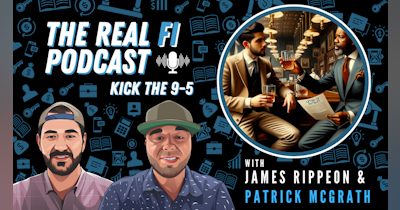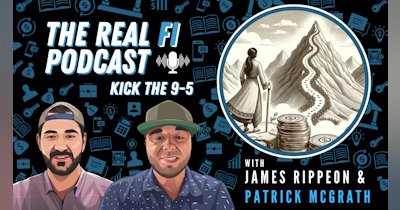Living a frugal lifestyle is the first step in anybody's journey to financial freedom. Frugal living can take a small and humble wage earner from their 9-5 to retirement very quickly, but it is a practice that is easier said than done.
Financial frugality involves recognizing patterns of spending and looking for opportunities to make improvements with financial habits. Common advice encourages savers to be frugal with every aspect of life, sometimes to an extreme, but often the most productive savings habit is to identify your largest expenditures and figure out how to curtail spending in those areas.
What do you think your biggest expenditures are on a monthly basis? People typically guess that it is housing, transportation, food, or healthcare, but for the average American working a salaried job, the largest annual expense is paying Uncle Sam his annual taxes! While we’re not going to get into tax strategies in this post, it is a topic we’ll learn more about in future posts.
Today, we’re going to focus on the spending habits that are identified by the U.S. Bureau of labor statistics. Take a look at this chart to see where Americans are generally prioritizing their spending.
This chart shows that for the average American who is motivated to improve themselves financially, reducing spending on Starbucks trips isn’t going to make the biggest difference. There are simply other areas that are more deserving of our financial attention, such as housing, transportation, and food. We only have a limited bandwidth of mental energy we can allocate towards creating good habits, so we should prioritize our efforts towards making more meaningful changes. You’ll find that these big ticket spending categories require the most effort and intentionality to fix, but they yield the biggest results.
Housing
Besides taxes, housing expenses are likely the most burdensome monthly expenditure you face on a month-to-month basis. This will come in the form of rent or mortgage payments. While many feel entitled to living in a large and comfortable home, there is a true opportunity cost to that expensive lifestyle during the early stages of pursuing financial dependence.
What can we do to reduce our monthly living costs?
If you're renting, a great option for reducing your monthly living expense will be to find a smaller apartment or home, or even finding roommates to co-lease an apartment with. Group living might not be for everybody in every situation, but with more people pitching in under one roof you will quickly see a difference in your monthly living expense.
Another option might be to relocate to a new neighborhood that is more affordable. While less expensive neighborhoods may be further away from fun city attractions, this comes with its own benefit. The further away from the nightlife that you are, the less you’ll be tempted to go out and spend additional money on food and drinks.
If you're more inclined to own your residence instead of renting in a more affordable area, then a great solution would be to house hack. House hacking is where you purchase a home with multiple units that you can rent out, or just sublet the extra rooms in your single-family house to other people. Of course, the most optimized version of house hacking to generate sustained wealth is to purchase a property that has 2 to 4 units and just live within one of those units. Either way you slice it, figuring out a way to house hack will yield a huge return on your housing investment.
Commute
Nothing is worse than having to drive two hours a day to and from work. Have you taken the time to do the math and add up how much of your time you’ll spend in a car for the rest of your 9-5 life? I can promise the number is frightening.
One option for reducing your commute expense is to reduce the amount of time that you spend in your car. This provides two benefits, one financial and the other related to your health. On the financial side, you'll be spending less money on maintenance and gas. On the health side, you’ll be improving your quality of life by gaining time to do things that are more important to you.
Go ahead, do the math for the number of miles that you commute to work each day and calculate how much gas you're spending on a monthly basis. The IRS suggests that we calculate our travel expenses at a rate of roughly $0.58 per mile. Let’s assume that you drive 45 miles per day, 5 days per week, for 52 weeks per year. At the end of the year, you’ll have spent $6,786 just to get to and from work. If you were able to save and invest that amount, it would really add up over a lifetime.
There’s a lot we can do to reduce our commuting costs. Is there any way for you to bicycle to work? Walk to work? Is there any public transportation available in your area? How about remote working opportunities so that you don't even have to leave your house in the first place? In today's day and age, there are a lot of solutions to reducing the average person's commuting expenses, so don’t blindly accept the status quo. But be careful, because sometimes balancing your cost of living with commute expenses can be a catch-22. Meaning, if you choose to live closer to work to reduce gas consumption or get rid of your vehicle, that might involve renting or buying more expensive real estate. It’s something that you’ll have to find a happy balance between.
If you're unable to get to work without your own personal vehicle, then another solution is to change the type of vehicle that you drive. Are you afraid of getting looks while driving around that ‘98 Honda Accord beater? Welp, that’s an insecurity you may have to get over. We’re programmed to want to outwardly project success on others, but once you’re able to master the mindset of frugal living, and develop an appreciation of delayed gratification, driving around that beater car will be much easier. At that point, you’ll be driving around noticing other people’s fancy cars and wondering to yourself, “I wonder if that person can even truly afford that vehicle?”
Food
In a given year, food will make up between 11 and 13% of the average American's annual expenditure. The simple explanation for where this money is going is the habit of eating outside of the home. The solution is simple and doesn’t require much elaboration–pack your damn lunch! The more you are able to eat at home (or foods prepared at home) the more money you'll save in this area.
Still, a lot of people feel the need to go out to bars and eat and drink with friends on the weekend. I get it, you don’t want to be a lunch-packing hermit for the rest of your life. There are easy alternatives to this so we can balance frugality and a social life. How about hosting a potluck at your house with a bunch of friends and playing a board game or watching a sports game together? With everybody chipping in to bring their own homemade food and drinks, not only are you likely to have a better dining experience, but you (and everyone else) will be saving money.
Conclusion
Good financial habits will certainly not make you rich. Getting rich requires increasing your income and investing, but what good saving habits will do is help you create a foundation from which to build your financial life. The big metric to focus on is your savings rate. The more that you can save (and invest) from your disposable income, the faster you will be in a position to retire.
Take the time to figure out what is most important to you and optimize your spending habits around those priorities. Quality of life, health, and social happiness can all be an unintended, positive consequence of good financial habits.
At the very least, take the time to crunch the numbers on all of the suggestions and see what might work best for your life. It will take some creativity and some thought, and some strong actions, but in the end it will be worth it. Your future self will thank you. Remember, don't focus on the small spending habits. Figure out what has the biggest impact on your financial picture and tackle those items first. The rest will fall into place.
Let’s kick the 9-5!
Decide. Commit. Take Action.








